Selection of Courses to Meet Program Requirements
Half of the prescribed courses for the program must be taken from within the department. Thus the other half may either be transfer credit or taken from outside the Chemistry Departments at the Universities of Guelph or Waterloo. Course selection should be done in consultation with the student’s supervisor/research advisor.
Course Content
All graduate courses in GWC2 have final examinations, unless prior to the start of the course, the course instructor has proposed an alternate rigorous method of assessment to the GWC2 Director. Although the overall method of evaluation is left up to the individual professors, general monitoring has shown the method of assessment to include assignments, a mid-term and final examination. All graduate courses are evaluated by the students each semester with respect to the course content and to the performance of the professors. These evaluations are kept on file in the Centre Office and are made available to the instructors for their information.
Course Adds and Drops
Course Adds and Drops are allowed during the first six weeks of term.
University of Guelph
- After the official add period has concluded (see the following website to determine the add deadline – http://www.uoguelph.ca/registrar/calendars/graduate/current/sched/index.shtml)
- The student will need to download and complete the Add, Drop and Change Form (http://www.uoguelph.ca/registrar/graduatestudies/files/addform.pdf).
- This form will need to be signed by the Instructor, a Departmental signature (Departmental Chair or Graduate Officer and the Student. Although the form may be submitted up until 40th class day at Guelph University, the GWC2 only allows Adds or Drops during the first six weeks of the term. Adds or drops after that point would need to go through an appeal procedure using the Graduate Student Petition for Academic Consideration Form (http://www.uoguelph.ca/registrar/graduatestudies/files/petition.pdf).
- Students wishing to register in any undergraduate course or course for audit must obtain the instructor’s signature on the Graduate Student Add/Drop & Change form.
University of Waterloo
- During the first six weeks of term, students must drop or add graduate courses using Quest, the University of Waterloo’s on-line student information system. For courses with enrolment restrictions, students must obtain permission through their Department Graduate Assistant.
- Graduate students who wish to enroll in an undergraduate course may petition using a Drop/Add form, obtainable through their Department or the Graduate Studies Office. (http://www.grad.uwaterloo.ca/forms/Academic_Records/dropadd.pdf) Signature of the instructor, supervisor and Department Graduate Officer is required.
- After the first six weeks of term, students may not drop or add a course except by petition using the Drop/Add Form, and only under exceptional circumstances with the signature of the instructor, supervisor, Department Graduate Officer and the Associate Dean (Graduate Studies) of their home Faculty.
- Some graduate and all undergraduate courses require instructor or department approval or may have other restrictions such as prerequisites. Consult the Graduate Studies Course Catalogue to view all approved Graduate Studies Courses and any restrictions at: www.grad.uwaterloo.ca/students/current/gradcourses.asp. Permission numbers are issued by academic departments to facilitate on-line course additions for an approved graduate course with restrictions or prerequisites. If you are enrolling in an undergraduate course, the Graduate Studies Course Drop and Add form must be approved by the course instructor and submitted to your academic department.
Auditing Courses
The instructor can determine the requirements for an Audit course – anything from specifying attendance only, to handing in assignments and doing tests and exams, but not a final examination. The requirements must be clearly identified to the students. Students are required to use the Add and Drop form to register in the class. If the student does not fulfill the requirements, as stipulated by the instructor, the student will not receive an Audit credit for the course. Students may not switch from Audit to a registered course status and it is up to the department if they wish to allow a student to register in another term for the course.
University of Guelph
With the consent of the advisory committee, the instructor and the department chair concerned, a student may register for and audit all or part of a course using the Add, Drop and Change Form. (http://www.uoguelph.ca/registrar/graduatestudies/files/addform.pdf)
University of Waterloo
Graduate students at Waterloo who request to take courses as “Audit” or “Extra” must use an add/drop form (provide the term and the four-digit class number) (http://www.grad.uwaterloo.ca/forms/Academic_Records/dropadd.pdf), with all the appropriate signatures included, to sign into a course as an audit.
Low Grades
Graduate students who receive course grades below 70% will receive a notification letter from the GWC2 Director. While 65% is a passing grade in a graduate course, students must have an overall average of at least 70% in order to fulfill the course requirements for a graduate degree. Students are encouraged to do whatever is necessary to ensure that their performances in their remaining graduate courses will allow them to satisfy degree requirements. The notification is copied both to the student’s supervisor and the appropriate University graduate officer.
Failed Grades
In the event of a failed grade, the GWC2 Director sends a letter to the student regarding the failed grade in which it is stipulated that GWC2 policy dictates that the student’s advisory committee meet as soon as possible and recommend to the Director one of the following:
- that the student successfully complete, in the following term, another graduate course to replace the failed course
- that the student be required to withdraw from the program
The Graduate Officer is contacted to ensure that a meeting is arranged as soon as possible.
Incomplete Course-Work
An Instructor may set an alternate date for a final examination, where the student has missed the examination due to medical reasons or other special circumstances. The student must provide a medical certificate or other supporting documentation.
Courses at Other Universities
Full-time students that request to take courses at other Universities are only allowed to do so if they have already completed the majority of their course-work and the course is not offered at the home University. As a full-time student, half of all lecture courses must be taken at the home university. In all cases, graduate students are advised to consult with their academic advisors and receive permission prior to taking courses outside of the University. As such the maximum courses that can be transferred or taken at another University are as follows:
- Full-time MSc (Thesis): Of the four required lecture courses for the full-time MSc, two course can be accepted as a transfer credit or taken at another University (if allowed through a Letter of Permission (LOP) or OVGS or transfer credits (Guelph) or OVGS or transfer credits (Waterloo)).
- Full-Time PhD: PhD graduate students can only take one course at another University or apply for transfer credit for one course.
- Part-time students can not take courses outside of their home universities.
OVGS: The Ontario Visiting Graduate Student Plan allows a graduate student of an Ontario university (Home University) to take graduate courses at another Ontario University (Host University) while remaining enrolled at his/her own university. The plan allows the student to bypass the usual application for admission procedures and resultant transfer of credit difficulties. The student enrols and pays fees to his/her Home University and is classed as an “Ontario Visiting Graduate Student” at the Host University where he/she pays no fees.
Enrolling in Courses Outside of Ontario: In all cases the student must maintain their University registration while taking a course at another University. Students are also advised that they must get approval in advance. An official transcript must be submitted from the host university directly to the Graduate office upon completion of the program.
- Guelph: Letters of Permission (LOP). Only one LOP course per program is permitted. The LOP applications must be approved in advance; approvals will not be granted retroactively. Students are responsible for making the necessary arrangements for admission to the host university and for any fees payable. Following successful completion of the course and receipt of the official transcript, the University of Guelph agrees to reimburse the student for tuition costs incurred at the host institution, up to a maximum of $500, upon presentation of original receipts.
- Waterloo: Graduate Students are responsible for making the necessary arrangements for admission to the host university and for any fees payable. Following successful completion of the course, the graduate student arranges for the official transcript and course outline to be forwarded to the University for assessment for course credit. Students are not reimbursed for the tuition.
Meeting Program Requirements
Half of the prescribed courses for the program must be taken from within the department. Thus, the other half may either be transfer credit or taken from outside the Chemistry Departments at the Universities of Guelph or Waterloo. Course selection should be done in consultation with the student’s supervisor/research advisor.
Course Requirements
All graduate courses in GWC2 have final examinations. Although the overall method of evaluation is left up to the individual professors, general monitoring has shown the method of assessment to include assignments, a mid-term and final examination. All graduate courses are evaluated by the students each semester with respect to the course content and to the performance of the professors. These evaluations are kept on file in the Centre Office and are made available to the instructors for their information.

